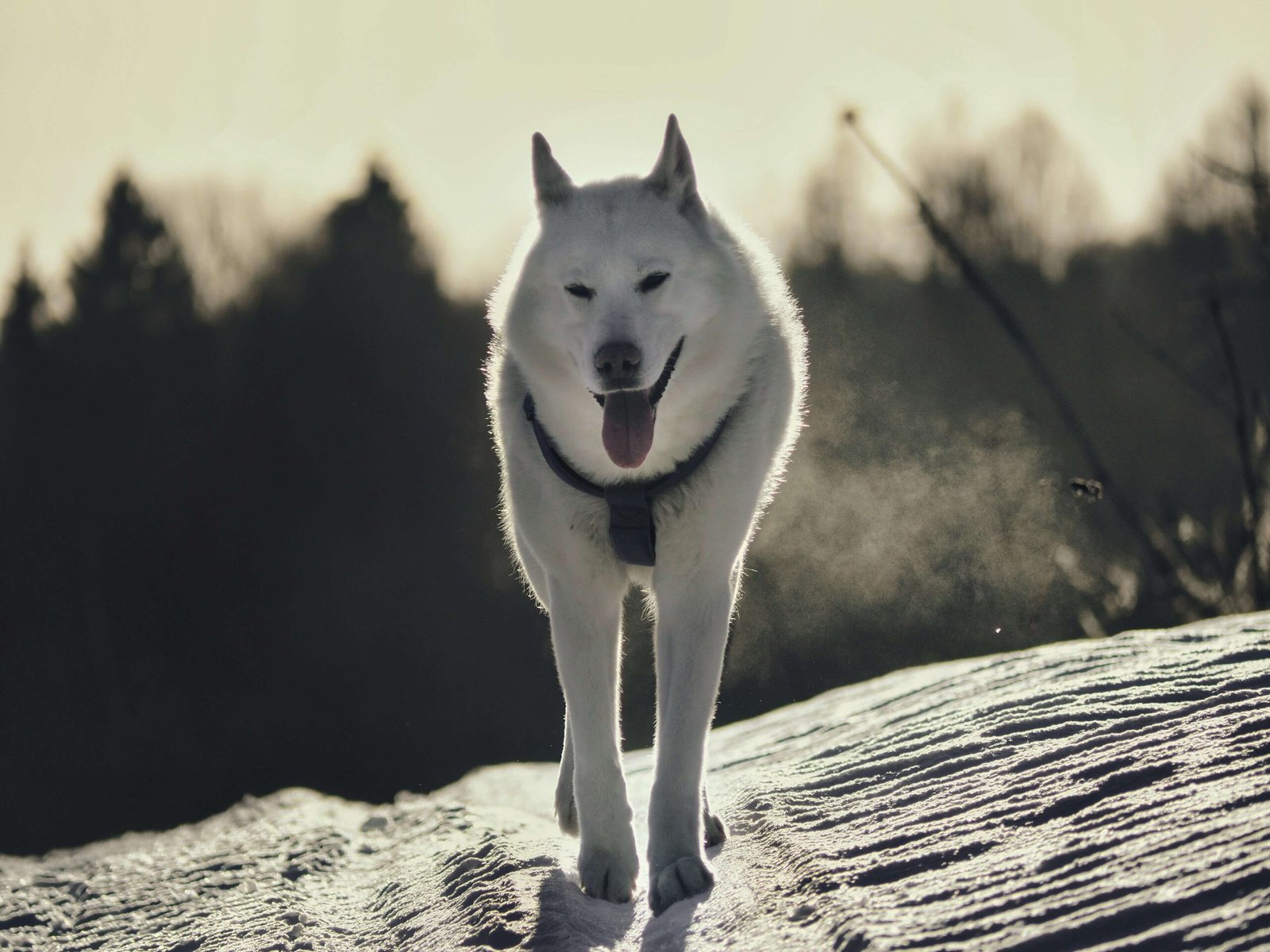Is Salmon Dog Food Good for Dogs?
When it comes to choosing the best food for your furry friend, salmon dog food has gained significant attention in recent years. Packed with omega-3 fatty acids, protein, and essential nutrients, salmon is often hailed as a superfood for dogs. But is salmon dog food truly beneficial, or are there potential downsides to consider? Whether you’re exploring dietary options for your pup or simply curious about this trendy ingredient, it’s important to weigh the pros and cons before making the switch. In this blog post, we’ll dive into the benefits, risks, and everything you need to know about feeding salmon-based dog food to ensure your dog stays healthy and happy.
Health Benefits of Salmon Dog Food
Salmon dog food offers a range of nutritional advantages that can support your dog’s overall well-being. Here are some key benefits:
Rich in Omega-3 Fatty Acids : These healthy fats promote skin health, reduce inflammation, and support joint mobility.
High-Quality Protein : Salmon provides complete protein, which is essential for muscle development and repair.
Improved Coat Condition : The oils in salmon can make your dog’s coat shinier and softer while reducing shedding.
Supports Cognitive Function : Omega-3s, particularly DHA, are known to enhance brain health, especially in puppies and senior dogs.
Heart Health : The nutrients in salmon contribute to cardiovascular health by maintaining healthy blood pressure and circulation.
Incorporating salmon into your dog’s diet can provide these benefits, making it a nutritious choice for many pets.
Potential Risks of Feeding Salmon Dog Food
While salmon dog food has many benefits, it’s important to be aware of potential risks to ensure your dog’s safety. Here’s what to watch out for:
Bacterial Contamination : Raw or improperly cooked salmon can harbor harmful bacteria like salmonella or listeria.
Parasites : Some salmon may contain parasites that can harm your dog if not properly handled.
Allergies : Though rare, some dogs may develop allergies or sensitivities to fish-based proteins.
Mercury Exposure : Overconsumption of fish high in mercury can pose health risks over time.
Digestive Upset : Sudden introduction of salmon-based food can cause diarrhea or vomiting in sensitive dogs.
By understanding these risks, you can take precautions to ensure salmon dog food remains a safe option for your pet.
Check this guide 👉5 Best High-Fat Dog Foods for Ultimate Energy & Health!
Check this guide 👉Top 4 Premium Beef Dog Food Options for Ultimate Nutrition!
Check this guide 👉Top 5 Premium Hydrolyzed Dog Foods for Ultimate Health!

Benefits of Salmon Dog Food | Risks of Salmon Dog Food |
|---|---|
Rich in omega-3 fatty acids | Risk of bacterial contamination |
High-quality protein source | Potential for parasitic infections |
Promotes shiny coat and skin health | Possible allergic reactions |
Supports cognitive and heart health | Mercury exposure from certain fish types |
Reduces inflammation | Digestive upset from sudden dietary changes |
Tips for Safely Feeding Salmon Dog Food
If you decide to incorporate salmon dog food into your dog’s diet, here are some tips to ensure it’s done safely:
Choose High-Quality Brands : Opt for reputable brands that use sustainably sourced, thoroughly cooked salmon.
Introduce Gradually : Mix small amounts of salmon-based food with your dog’s current diet to avoid digestive upset.
Avoid Raw Salmon : Never feed raw salmon due to the risk of parasites and bacteria.
Monitor for Allergies : Watch for signs of itching, swelling, or gastrointestinal issues after introducing salmon.
Consult Your Vet : Discuss your dog’s dietary needs with your veterinarian to ensure salmon is appropriate for them.
By following these guidelines, you can safely introduce salmon dog food and minimize potential risks.
Alternatives to Salmon Dog Food
If salmon isn’t suitable for your dog or you’d like to explore other options, there are plenty of alternatives that offer similar benefits. Here are some nutritious choices:
Chicken-Based Dog Food : A lean protein source that’s easy to digest and widely available.
Beef-Based Dog Food : Rich in iron and zinc, beef supports muscle growth and immune function.
Lamb Dog Food : A novel protein option that’s ideal for dogs with food sensitivities.
Fish Oil Supplements : If you’re concerned about mercury, fish oil can provide omega-3s without the risks of whole fish.
Plant-Based Omega-3 Sources : Ingredients like flaxseed or chia seeds offer vegetarian alternatives for essential fatty acids.
These alternatives allow you to tailor your dog’s diet to their specific needs while still providing balanced nutrition.
How to Transition Your Dog to Salmon Dog Food
Switching your dog to salmon dog food requires care to avoid digestive upset. Here’s how to make the transition smooth and safe:
Start Slowly : Mix a small amount of salmon-based food with your dog’s current food, gradually increasing the proportion over 7–10 days.
Monitor Stool Quality : Keep an eye on your dog’s stool to ensure they’re tolerating the new food well.
Stay Consistent : Stick to the same brand and formula during the transition to avoid overwhelming their system.
Avoid Overfeeding : Follow the recommended portion sizes to prevent weight gain or digestive issues.
Observe Behavior : Watch for changes in energy levels, appetite, or overall demeanor as indicators of how your dog is adjusting.
By following these steps, you can help your dog adapt to salmon dog food without any adverse effects.
Signs Your Dog May Be Allergic to Salmon
While allergies to salmon are rare, they can still occur. Here are some signs that your dog may be allergic to this protein source:
Itchy Skin : Persistent scratching, licking, or chewing at their paws or ears can indicate an allergic reaction.
Red or Inflamed Skin : Look for patches of redness, swelling, or hot spots on your dog’s body.
Ear Infections : Recurrent ear infections may be linked to food sensitivities, including salmon.
Gastrointestinal Issues : Diarrhea, vomiting, or excessive gas can accompany food allergies in dogs.
Chronic Ear Odor : A yeasty smell in the ears may suggest an underlying allergy.
If you suspect a salmon allergy, consult your vet to identify the trigger and develop a suitable dietary plan for your dog.
Nutritional Additions to Enhance Salmon Dog Food
To maximize the benefits of salmon dog food, you can supplement it with other nutritious ingredients. Here are some safe and healthy additions:
Pumpkin : Adds fiber to support digestion and can help regulate bowel movements.
Blueberries : Packed with antioxidants, these berries are a tasty and nutritious topping.
Spinach : Rich in vitamins and minerals, spinach can boost your dog’s immune system (in moderation).
Fish Oil : Provides extra omega-3s to enhance skin, coat, and joint health.
Sweet Potatoes : A great source of complex carbohydrates and vitamins for sustained energy.
By incorporating these additions, you can create a well-rounded diet that complements the nutritional profile of salmon dog food.
Frequently Asked Questions About Salmon Dog Food
Can all dogs eat salmon dog food?
Most dogs can benefit from salmon dog food, but those with fish allergies or sensitivities should avoid it.
How often can I feed my dog salmon-based food?
Salmon can be fed regularly as part of a balanced diet, but moderation is key to avoid mercury exposure.
Is canned salmon safe for dogs?
Yes, as long as it’s plain, boneless, and free of added salt or seasonings.
Can puppies eat salmon dog food?
Yes, but consult your vet to ensure it meets their developmental nutritional needs.
What should I do if my dog has a reaction to salmon?
Stop feeding salmon immediately and consult your veterinarian to determine the cause and next steps.
Is Salmon Dog Food Right for Your Dog?
Salmon dog food can be a nutritious and delicious addition to your dog’s diet, offering numerous health benefits like improved coat condition, joint support, and cognitive function. However, it’s essential to consider potential risks, such as allergies or contaminants, and take steps to mitigate them. By choosing high-quality products, introducing salmon gradually, and consulting your vet, you can ensure your dog enjoys the benefits of this nutrient-rich ingredient safely. Whether you opt for salmon dog food or explore alternatives, prioritizing your dog’s individual needs is the key to keeping them healthy, happy, and thriving.
Do Cats Have Taste Buds? Best 7 Expert Tips! – Discover how cats experience flavors and why their taste is so unique.
Do Dogs Have Taste Buds? Best 7 Expert Tips! – Discover how dogs experience taste, their preferences, and what it means for their diet and health.
Can Cats Taste Sweet? Best 7 Expert Tips! – Discover why cats can’t taste sweetness, how it affects their diet, and tips to keep them healthy and happy.
Can Dogs Taste Sweet? Best 7 Expert Tips! – Discover how dogs perceive sweetness, which foods are safe, and tips to manage their sweet cravings responsibly.





